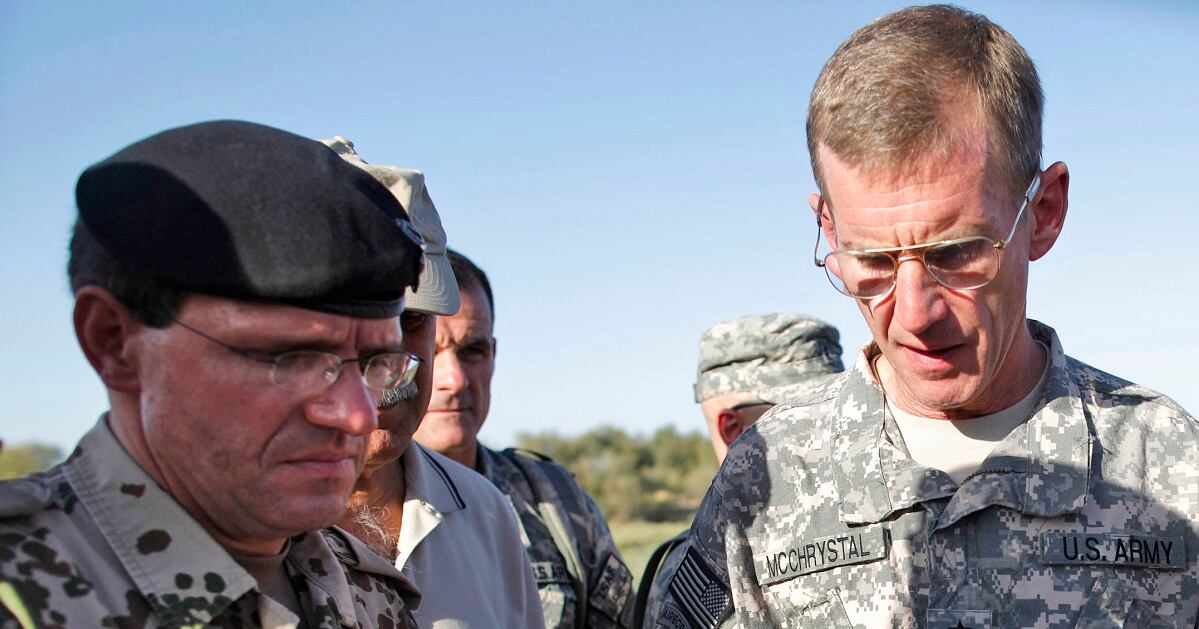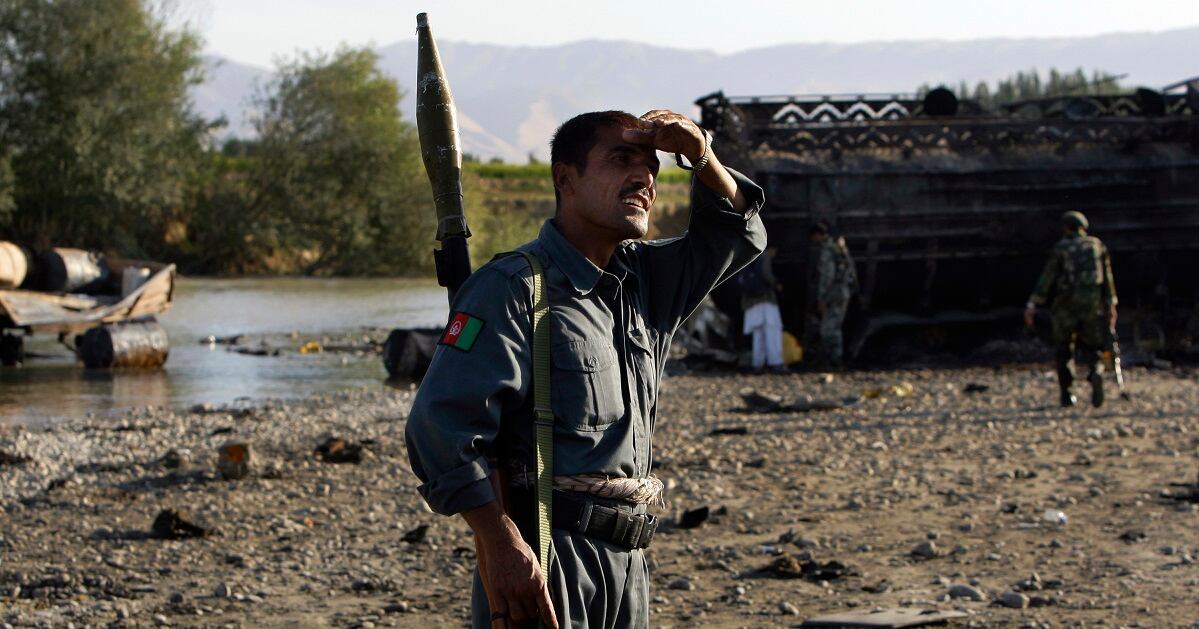BERLIN — Lawyers for survivors of a 2009 NATO airstrike in Afghanistan said Wednesday they are still seeking adequate compensation for their clients a decade later — and the criminal prosecution of the German officer who ordered the bombing.
Lawyer Karim Popal accused Germany of shirking its responsibility to the relatives and victims of the airstrike in the northern city of Kunduz on Sept. 4, 2009.
Scores of people, including many civilians, died when a U.S. Air Force F-15E Strike Eagle bombed two fuel tankers hijacked by the Taliban. The strike was ordered by the commander of the German base in Kunduz, Oberst (Col.) Georg Klein, who feared insurgents could use the trucks to carry out attacks. As part of the International Security Assistance Force, the NATO command in Afghanistan, the German troops were responsible for security in that part of the country.
German officers said the incident began on the evening of Sept. 3 when insurgents hijacked two trucks containing fuel for NATO on the main highway connecting Kunduz to the Tajikistan border, the Washington Post reported at the time. Within hours, the fuel tankers bogged down while trying to cross a shallow river. A B-1B bomber, which was supporting another mission in the area, spotted the trucks and relayed the information to the NATO command center. German commanders then declared the fuel trucks a threat and requested air support.

Two F-15Es arrived on the scene about 2 a.m. Friday, the Post reported. The German officers said video from an F-15E and the earlier overflight of a the B-1B Lancer showed that some of the people at the scene were carrying weapons. The Germans also said an intelligence source told them before the strike that all of the people around the trucks were insurgents.
Thirty minutes after receiving instructions from a German targeter, one of the Strike Eagles dropped two 500-pound GPU-38 bombs, one on each truck.
“I’ll never forget the moment,” Abdul Malek, the Afghan driver of one of the trucks, told the German news outlet Spiegel Online in a Dec. 15, 2009, interview. "At first, there was a loud droning, like what you hear when a generator short-circuits. Then there was a bright flash. I just let myself fall forward and went down underwater. Even from there, I could feel the shock wave.
“For a few seconds, it was as bright as day. Even the water was heating up. When I came out of the water, the whole area around the tanker trucks was on fire. It looked like the ground was spitting up fire, though it was just the fuel from the trucks. It was unbearably hot. There were bodies lying everywhere; they were completely carbonized.”
Only later did it become clear that most of the Afghans at the scene were local civilians invited by the Taliban to siphon fuel from the vehicles after they had become stuck.
Popal said he hopes the European Court of Human Rights will hear the case later this year after German authorities refused to prosecute Klein, who has since been promoted to the rank of brigadier general. The case was brought on behalf of Abdul Hanan, an Afghan man who lost two sons in the airstrike.
A separate civil case is pending before Germany's Constitutional Court, seeking to establish that German authorities have liability for events that took place outside the country.
Ahead of Wednesday's 10-year anniversary of the event, Popal said the $5,000 — labeled as humanitarian aid, not compensation — that Germany has given each family of victims isn't enough.
"The dead haven't been forgotten in Afghanistan," Popal said.
The incident is remembered as a dark day in Germany's post-WWII military history, too. The country's defense minister at the time, Franz Josef Jung, initially insisted that all those killed in the airstrike were insurgents.
The news that many of the victims were civilians, including children, dispelled the notion that Germany could wage a “clean war” and sapped public support for the mission in Afghanistan.

Lack of visible progress on the ground in the area where German troops operate has further undermined the case for sending soldiers to Afghanistan. Much of the countryside around Kunduz is now controlled by Taliban, and Germany has cut its troop numbers in Afghanistan from about 4,200 in 2009 to 1,300.
Christine Buchholz, a lawmaker for Germany’s leftist opposition party, expressed anger at what she described as the government’s “indifference” to the case, including the question of how many people were killed in Kunduz 10 years ago. Estimates range from 90 to almost 150.
"In my view it's more than cynical how the survivors are treated," said Buchholz. "We demand that the German government finally meets its responsibilities."
German government spokesman Steffen Seibert declined immediate comment on the anniversary Wednesday.
AP reporter Rahim Faiez in Kabul contributed to this report.
